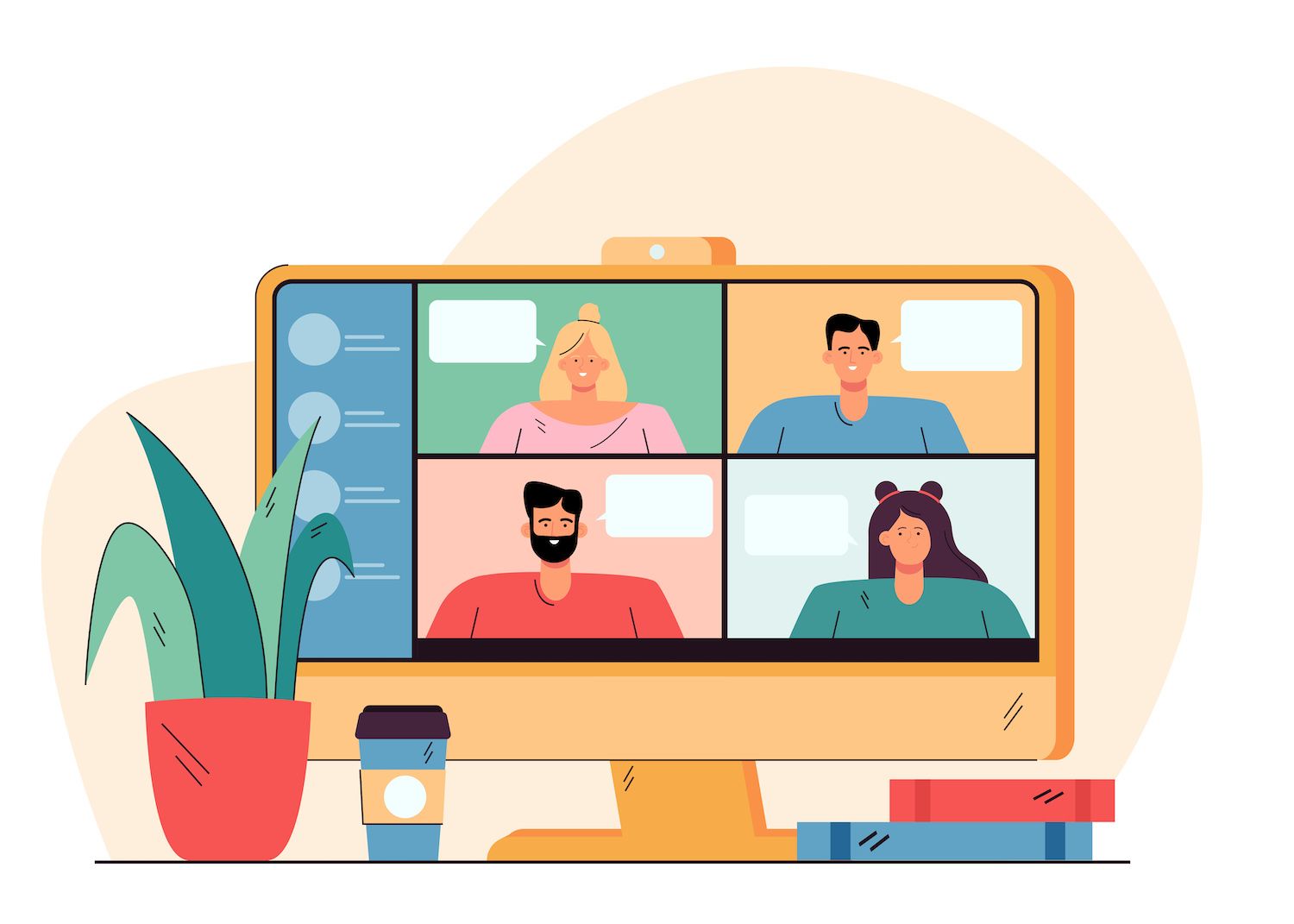Twitter vs. Mastodon: Which Platform to Choose (and a better alternative) |
Twitter was founded in 2006 and over the years that followed, the tiny bird tweets its way into the minds and the hearts of more than 400 million people. Twitter consisted of text-based, short posts that were compiled in "tweets." Long-time users of the platform will remember the controversy that ensued when tweets grew beyond the 140 characters limit to 280 and the brief protest that followed.
After Elon Musk's $40 billion Twitter acquisition of the company in the month of the month of October, 2022, lots of users have fled Twitter. Some object to Musk his own persona, be it his political beliefs or management style. Some people don't like his idea regarding his platform.
Another of Twitter alternatives that's made the rounds lately is Mastadon. Created in 2016 to be an open-source and free-of-cost social network, Mastodon touts (or we should call it "toots") its services as the best option for long-time Twitter users. With stars such as Kathy Griffin and Stephen Fry moving to the platform, you might be wondering if it's the right time to give it a go the same.
In this article, we'll talk about Twitter and. Mastodon. We'll show how the wooly mammoth compares to the tiny blue bird. Then, we'll about a more suitable alternative.
If you're looking for more help to build your community online Come join OUR Mighty Community for free and get to know other newly experienced community leaders! We'd like to get to know you. Sign up for free!
In this piece...
An alternative to both Twitter and Mastodon
Actual ownership = monetization
What exactly is Mastodon
Mastodon is a social network that's situated on what is referred to by users as to the "fediverse" which basically implies that the network is on separate servers which can connect to one another. This creates a kind of a local to social network vibe. The site was founded in the year 2016 by Eugen Rochko, Mastodon is a little as if it's a network of independent social networks who all speak the same the same language.
But, if the individual server part of Mastadon makes you feel uncomfortable I'll say this. After you have gotten past the individual hosting (ie. the place where your data is stored), the user experience is remarkably similar to Twitter perhaps with a bit of Discord added in. Instead of "tweet" it's a "toot." Instead of "liking," you "favorite" something. Long-time users of Twitter will probably identify Mastodon as a type of brand that is similar to Twitter but with only 500 characters.

Mastodon allows you to create an account, where you can upload a profile picture, a link to your website, and other details that users put in their Twitter bios. Similar to Twitter, you get a head count of your followers as well as the ones you're following. You are able to reply, increase (AKA "retweet"), star (favorite) some thing and bookmark tweets.

Pros and cons of Mastadon
Pros
- Mastadon feels like Twitter. The user experience is likely to be similar, allowing you to get the account running in a matter of minutes. Posting, uploading photos as well as videos, even polls feel almost identical.
- It's also got features that interact. You can direct message persons, monitor them either by blocking them or make them aware by using an @.
- Its decentralised look provides more possibilities over Twitter to build something similar to the concept of a space or dedicated server on which users who are who are interested in one particular topic can come together.
- There aren't any ads available on Mastodon. There are people who have created servers through a cash payment or using crowdfunding. This has some issues to it, that we'll be talking about below however it's a nice thing in principle.
- The software that powers Mastodon is open-source. It's generally an excellent thing as people can adopt it and use it to customize their own discussions. Alongside the Mastodon official apps, many users are using Mastodon's open-source code to create their own social apps.
- There is no limit to the number of the people who are on your server. You can follow people on the same platform, regardless of which the server that they are on. It is also possible to mark servers that are open for join or ask potential users to an application to join.
Cons
- There isn't an algorithm. The users see their posts as they're published. At first, this sounds wonderful however it reduces the user-friendliness of the platform.
- There is a cost to paying. It's wonderful to not have advertisements on Mastodon However, there might be an issue. Growing your followers with a server implies that someone must pay, either you pay yourself, or you'll operate on a server which someone else pays for. It's great when it lasts for long, but should someone feel it's no longer worthy of their time and effort to pay for the server, it may disappear.
- Mastodon can be difficult to establish for those who want to create an own YouTube channel. You need to figure out how you can manage the hosting yourself and set up security protocols. If you're not an expert programmer then you'll probably have to engage one.
- There are a lot of security concerns in the manner this system is structured. Requiring people to "apply" to a server can help a bit, and so do the "block" options. There's not any actual moderation and anyone can be seen by any person, anywhere, regardless of what server they're on. And since it's grassroots it's impossible to change the way things are done when it's inevitably taken over by bots and Trolls.
- There's not a way to monetize on Mastodon. In addition to this, it's also not completely free. Anyone hosting the site has to pay for it and there's no advertising. In the moment the network is funded by donations, which raises grave concerns about the longevity of these networks.
- It's an open-source and open-source community engine that is decentralized. Open source software can be beneficial, it allows users to edit and repair bugs, but also bad and has been used to create problematic networks, like Gab.
The better choice for both Twitter and Mastodon
For an Twitter alternative, Mastodon does a lot of the same things. It's a bit more complicated to use, requires self-hosting to establish a server and , frankly speaking, doesn't have a lot of the good functions Twitter provides. It's easy to ignore an algorithm. But on a traditional social network, the algorithm helps you find content that you'd like to view. If your feed is unorganized and never-ending brain dump, it makes it difficult to talk to people and to build community. We could think of Mastodon as a kind of forum however it's not working the same way as reddit which has up-voting and down-voting so that people get relevant information.
We'll talk about another option. is a cultural software platform which helps to create vibrant communities. While Twitter is a huge social network , and Mastodon is a vast collection of servers, Mighty lets you build a dedicated community full of people who have similar views and goals.
Here are a few reasons to build the Mighty Network instead.
Start your free Trial No credit card is required.
True usability
In contrast, Mastodon is a web-based platform that requires programming and hosting to be able to set up the server of your choice, Mastodon gives you a powerful community right out of the box. Anyone can easily create or grow a community, as well as create a thriving community that blows both Twitter and Mastodon out of the water.
Real content is a feature of HTML0.
280 characters? 500? What's the point? The Mighty Network gives you actual content features. Create posts if you want you, or write long-length articles (blog articles). Create polls, discussions, organize discussions, live stream, add events, and create classes. Mighty is a social network designed to foster community and to bring a group of strangers together and help people become friends for life.

Spaces, not servers
Contrary to Mastodon, where users live in servers, but are able to connect over the entire platform however, a Mighty Network is an enclosed community. Instead of having to connect multiple servers, conversations and activities can be organized through spaces instead. Each space gives you the option to sell access, host events, add content, all-member chat or even live streaming or courses.
Actual ownership = monetization
If you've gone to the work to build an online community, and now you're looking to generate revenue from it, there's nothing to be concerned about. So instead of worrying about whether your platform has ads or not - like Mastodon has - why not just build on the platform that can help you transform your community into a profitable business?

It has built-in payments, which makes it easy to charge members with a monthly or one-time cost for the privilege (or make it free if you prefer). There are hosts who make money from free communities by offering paid live events, charging for access to premium space and even selling courses. The sky is the limit, and you can't do any of this on or through Twitter or Mastodon.
Safer
A Mighty Network gives you way more choices for security and moderation. It is as flexible like Mastodon in encouraging members to sign up or apply to join. Moderators can manage content as well as enlist other hosts as moderators. Because users are part of a community instead of the entire network, you'll feel secure in your personal Network.
Applications and access
The app is great that works on all types of devices. However, with Mighty Pro You can create a custom personalized app, which offers the user the Mighty Network completely within your brand. We create the application and provide ongoing support. Call us to learn more.
Are you ready to begin?
If you're looking for alternatives to Twitter as well as Mastodon, the software review website G2 is ranked as the top rating community platform. With Mighty it comes with the power of a community engine that will bring people together for great conversations. But add in the tools like events, courses, and monetization, you've got everything to create your own efficient social network.
What's the harm in giving it a try? It's free for 14 days, and we'll not ask for your credit card. Your own personal social network running in the next 20 minutes with no programming is required.
Are you ready to begin building communities?
